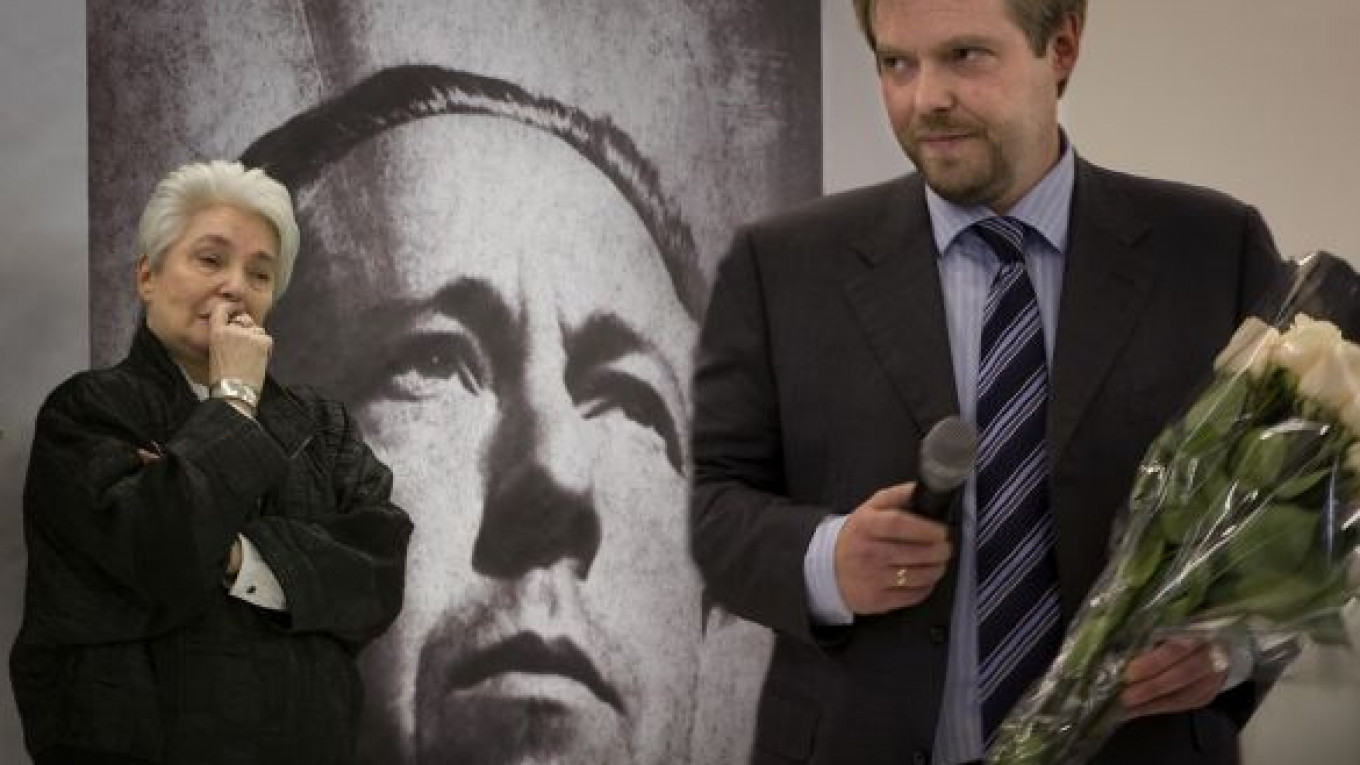MONTPELIER, Vermont — Residents of the southern Vermont town that was once the home-in-exile of former Soviet dissident and writer Alexander Solzhenitsyn are considering whether to convert a historic church into an exhibit to honor the Nobel laureate's 18 years in Cavendish.
At the Town Meeting the locals' annual decision-making gathering and the venue where Solzhenitsyn once addressed his neighbors when he arrived in 1977 voters will be asked whether they should take ownership of a small, stone Universalist church and use it to honor him.
Solzhenitsyn, who spent eight years in prison and labor camps for criticizing Soviet dictator Josef Stalin, said he chose Cavendish for its resemblance to his homeland and its small-town personality.
"I dislike very much large cities with their empty and fussy lives," he told his new neighbors. "I like very much the simple way of life and the population here, the simplicity and the human relationship. I like the countryside, and I like the climate with the long winter and the snow, which reminds me of Russia."
Solzhenitsyn wrote his best-known works, "One Day in the Life of Ivan Denisovich" and "The Gulag Archipelago," based on his years in prison, and was awarded the Nobel Prize for iterature in 1970.
If the town decides at the meeting Monday to take over the deed to the church, plans call for some repairs and later an exhibit that would include videos of Solzhenitsyn talking about his years in Cavendish, where he lived until 1994 and where his son, Ignat, a pianist and conductor, still lives with his family.
The town, which prided itself on protecting Solzhenitsyn's privacy, hopes to find the sign that once sat in a store window warning that the proprietors offered no directions to his home.
Visitors still ask, and townspeople still decline.
"That's been our legacy is to let people do what they need to do and let people be as best we can. I love our town's history of being a place of refuge, and I love the fact that when Solzhenitsyn was here he extended that to other people," said Margo Caulfield, coordinator of the Cavendish Historical Society.
The impetus for the project came when the town had little to offer a group of Russian tourists last summer who expected a monument in their countryman's honor, Caulfield said.
Built in 1844 under the leadership of renowned abolitionist Reverend Warren Skinner, the church was decommissioned in the 1960s. Caulfield said church leaders last year offered to donate the building to the town.
"He just did an incredible job of showing that a person can sustain unbelievable horrors and go on to live a remarkable life and just really thrive," Caulfield said of the town's famous resident. "Our focus is clearly we want to make sure our schoolchildren know about the work that he did and the importance that it played."
In 1994, just before he and his family moved back to Russia, Solzhenitsyn spoke again at Town Meeting, bringing tears to people's eyes. And after he died in Russia in 2008, the town held a memorial service at the elementary school to honor him.
A Message from The Moscow Times:
Dear readers,
We are facing unprecedented challenges. Russia's Prosecutor General's Office has designated The Moscow Times as an "undesirable" organization, criminalizing our work and putting our staff at risk of prosecution. This follows our earlier unjust labeling as a "foreign agent."
These actions are direct attempts to silence independent journalism in Russia. The authorities claim our work "discredits the decisions of the Russian leadership." We see things differently: we strive to provide accurate, unbiased reporting on Russia.
We, the journalists of The Moscow Times, refuse to be silenced. But to continue our work, we need your help.
Your support, no matter how small, makes a world of difference. If you can, please support us monthly starting from just $2. It's quick to set up, and every contribution makes a significant impact.
By supporting The Moscow Times, you're defending open, independent journalism in the face of repression. Thank you for standing with us.
Remind me later.






